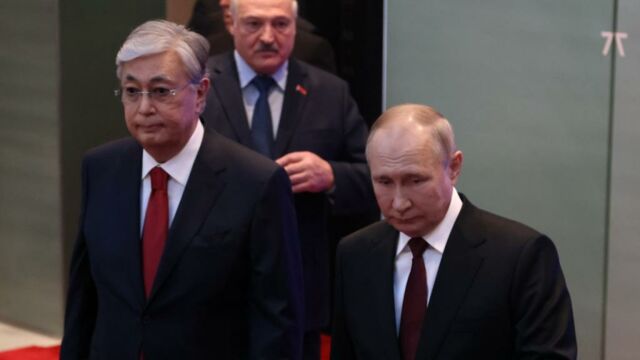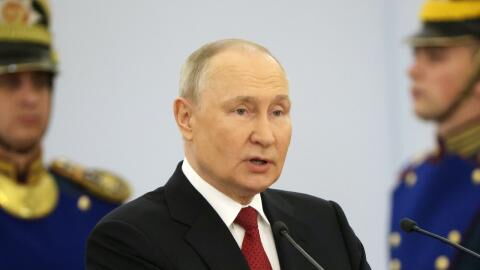Early this week, Russian President Vladimir Putin met with his counterpart from Kazakhstan, Kassym-Jomart Tokayev, to mark the 30th year of diplomatic ties between the two countries.
Discover our latest podcast
Following the meeting, several media zoomed into Putin's 'uneasy' body language, once again fueling speculation that the Russian leader could have underlying health issues that have not been publicised.
This time the uneasiness could either be due to an alleged health condition or also because of some existing tension between Putin and his guest.
Tension with Tokayev
Tokayev, the Kazakhstan leader, was just re-elected to his position after he secured an overarching majority earlier this month.
Vladimir Putin commented on the visit of Tokayev to Moscow, in his first state visit after re-election, as proof of the strong bond between the two countries, Metro reports. He said:
‘Today’s visit is of a special significance, as this is the first [foreign trip] since Kassym-Jomart was re-elected the president of Kazakhstan.’
Despite the united front, there has been tension between the two leaders. A few months ago, Tokayev, said Kazakhstan would not recognise the Russian-annexed territories in Ukraine.
According to Metro, he had additionally angered Putin for having accepted thousands of Russians fleeing from their mobilisation order and finding shelter in Kazakhstan.
Furthermore, just last week he called for a peaceful end to the fighting in Ukraine, saying:
We must not allow the fraternal Russian and Ukrainian peoples to part ways for tens or hundreds of years with mutual unhealed grievances.’
On Monday, Tokayev said his nation has every reason to be happy about its relations with Russia however, he also issued a suggestion to Putin by asking him to look to the future.
‘You need to look ahead, and it is for this purpose that I have come here.’
Putin's health condition
On the flip side, Putin's 'uneasiness' has also been linked to the highly speculated health issues he may have. The Mirror reports that his 'feet were twitching' and alluded to symptoms akin to those experienced during the first stage of Parkinson's disease.
Vladimir Putin’s feet seen twitching in meeting fuels Parkinson’s disease rumours #UkraineRussianWar#UkraineUnderAttackhttps://t.co/A93E94q7PE
— The Ukraine Dispatch (@UkraineDispatch) November 29, 2022
Read more: Vladimir Putin: Fresh speculation about his 'deteriorating' health condition after recent meetings
However, there should be great hesitancy when linking such behavior to a health condition. According to a report by DW, in the debate about Putin’s health, the most critical voices missing are those of medical experts.
This is mainly because neurologists who treat people who suffer from Parkinson's disease are professionals who are taught and entitled to talk about only about their own patients, says John Hardy, a neurogeneticist at the UK Dementia Research Institute.
The DW showed to Ray Chadhuri, a neurologist at the University of London, an earlier video clip of Vladimir Putin where he was experiencing some of the aforementioned symptoms.
Chadhuri replied, no one can diagnose Parkinson’s by merely watching a clip. He said:
’Looking at the short clip, I can find no evidence that I can tell of parkinsonism in Putin. Parkinson's disease is incredibly difficult to diagnose and can only be determined by thorough neurological examination in person. Bloating of [the] face or tremors can be caused by many reasons and I did not see any tremor either.’
Caroline Rassell, chief executive of Parkinson's UK, echoed the view presented by Hardy, DW reports.
‘It affects everyone differently,
With no definitive diagnostic test, it's something that can only be confirmed after examination by a neurologist or specialist. Media and online speculation is unhelpful.
Sources used:
-Metro: ‘Putin’s feet ‘twitch’ during tense meeting with Kazakhstan president’
-Mirror: ‘Vladimir Putin’s feet seen twitching in meeting fuels Parkinson’s disease rumours’
-DW: ‘Putin and Parkinson's: What do experts say?
Read more:
⋙ Vladimir Putin: Former agent claims the UK is full of agents serving the Russian leader















